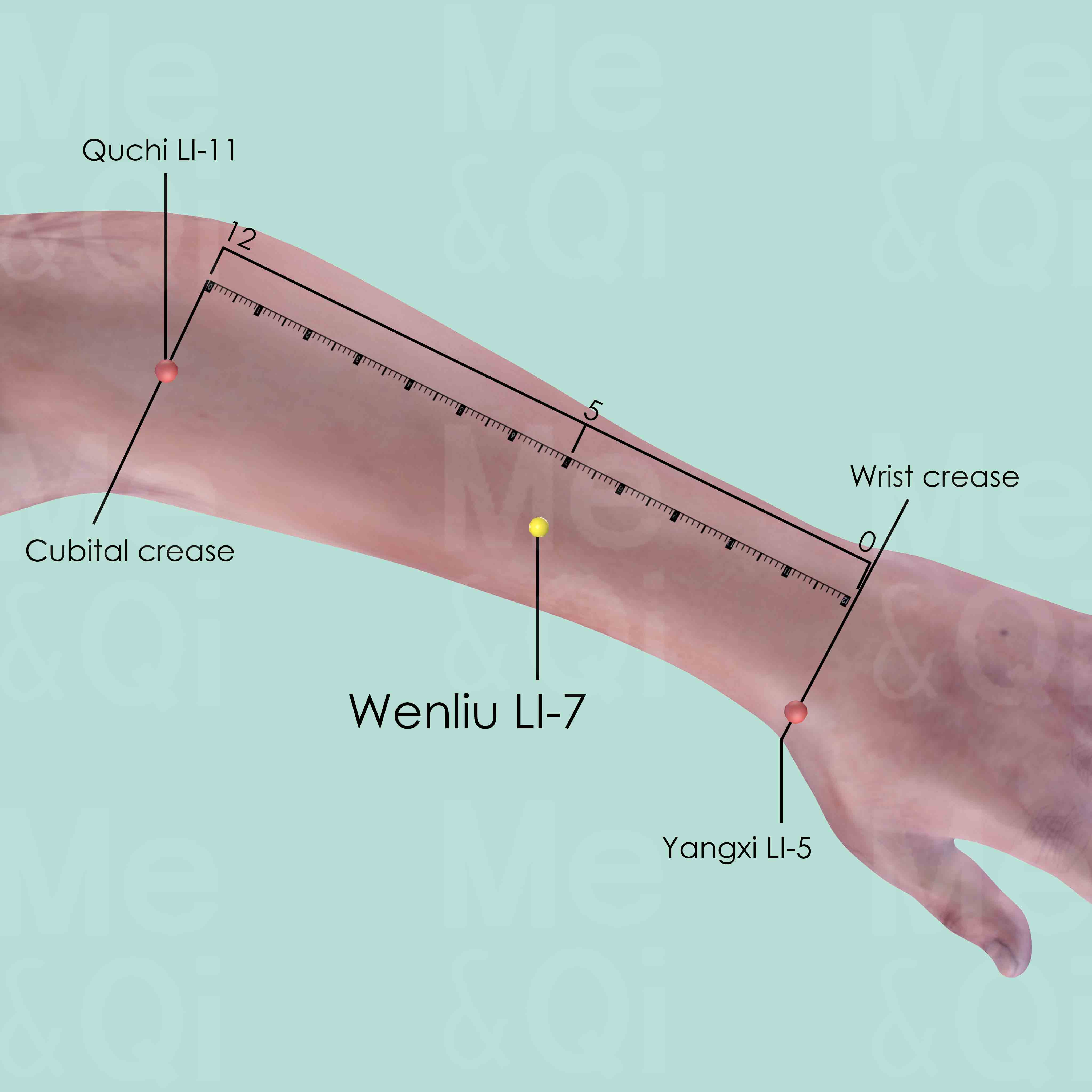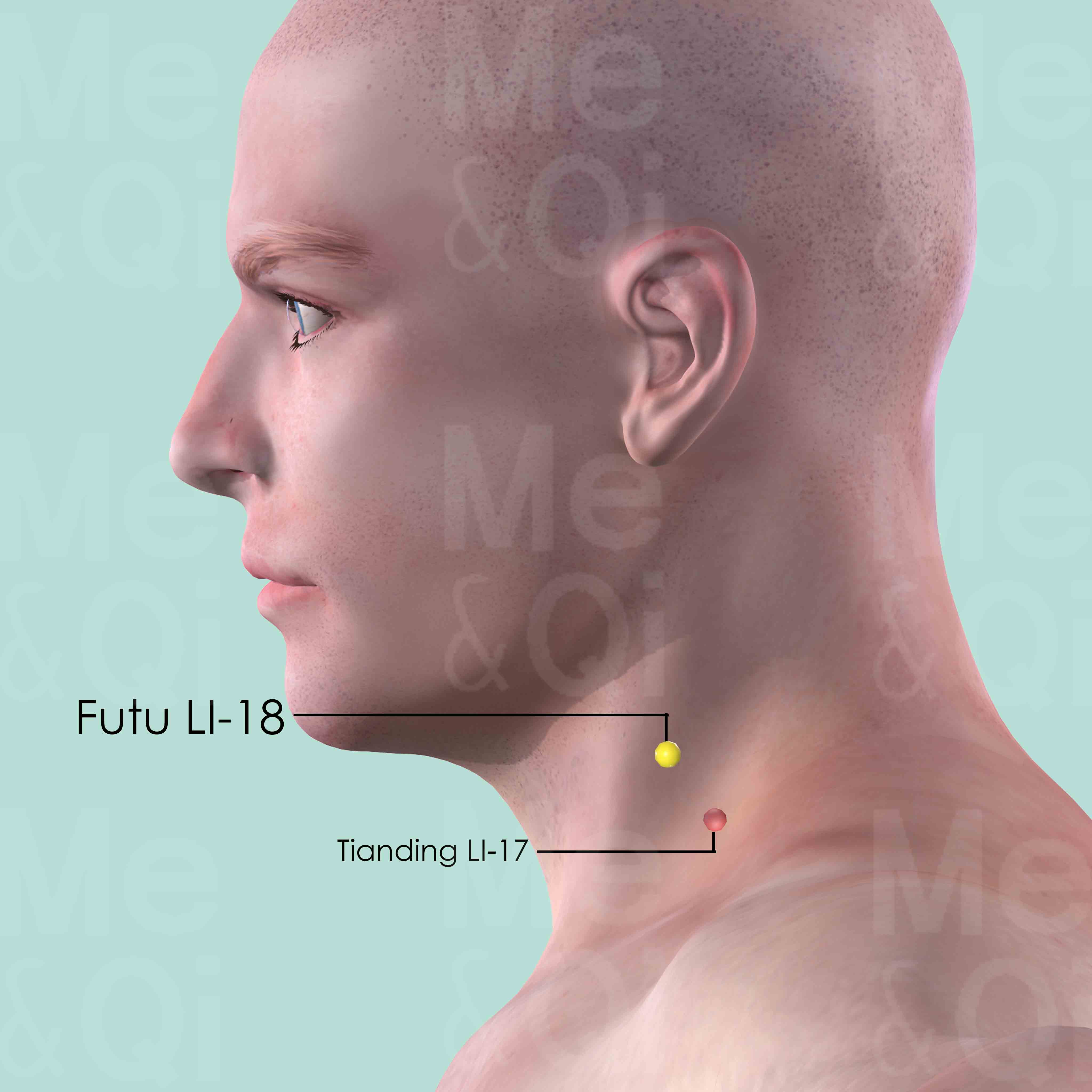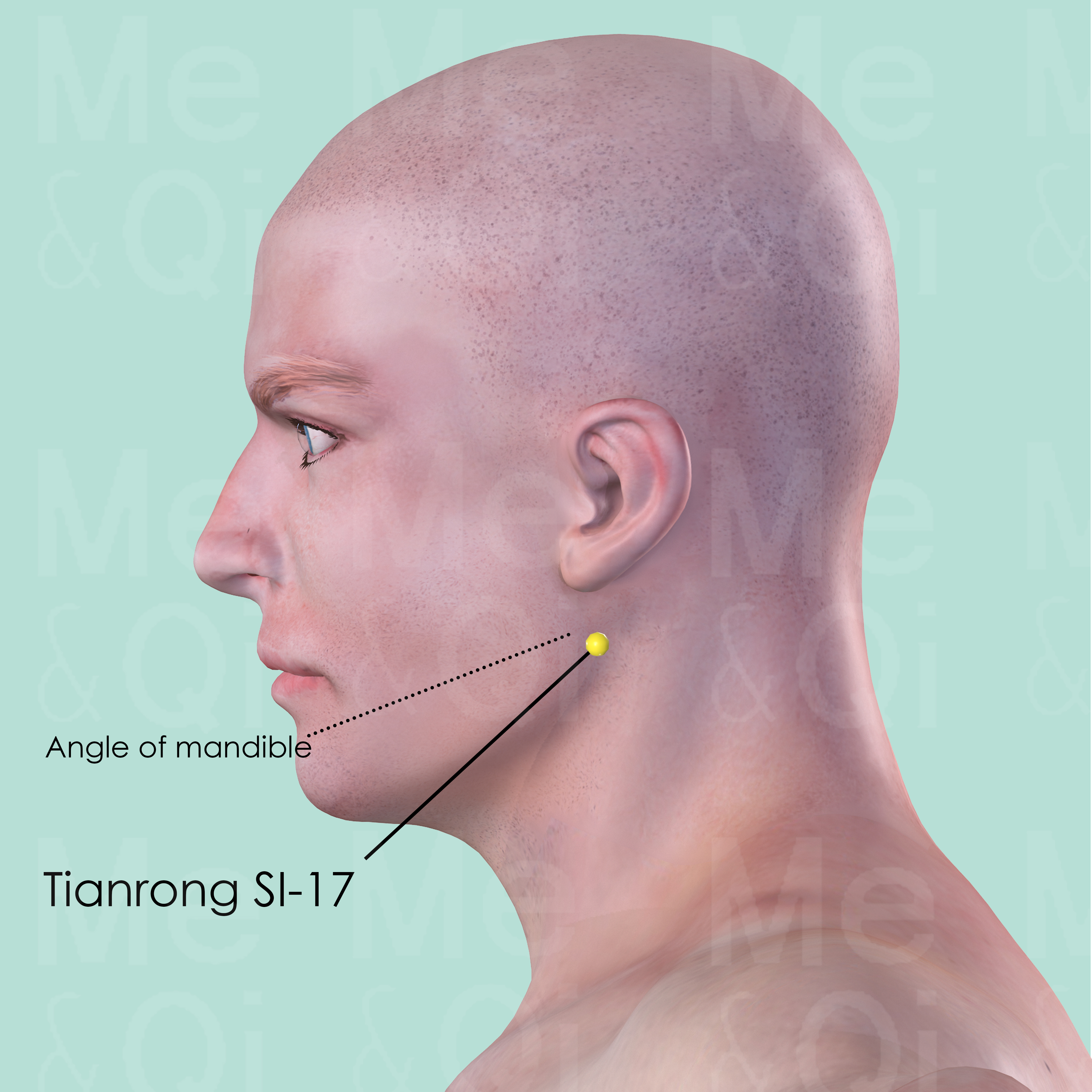Tonsillitisaccording to TCM
Symptom family: Tonsillar Conditions
Sub-symptom(s): Purulent Tonsillitis Chronic Tonsillitis Acute Tonsillitis
What is Tonsillitis?
Tonsillitis is the inflammation of the tonsils, two lymph nodes located at the back of the throat. It's a common condition that can present as swollen tonsils, sore throat, difficulty swallowing, and fever.
The inflammation can be acute, appearing suddenly and lasting a short time, or chronic, persisting over a longer period. It often results from viral or bacterial infections, with streptococcal bacteria being a frequent cause. The severity and treatment of tonsillitis can vary, highlighting the importance of understanding its underlying causes.
How does TCM view Tonsillitis?
Traditional Chinese Medicine (TCM) approaches tonsillitis as a disorder arising from an imbalance of Qi (vital energy) and an invasion of external pathogens such as Wind, Heat, Toxic, or Dampness.
TCM emphasizes the significance of identifying the specific disharmony within the body to tailor an effective treatment. It views tonsillitis as not just a localized throat issue but as a symptom of a broader systemic imbalance, necessitating a holistic approach to restore the body's harmony and immune function.
Causes of Tonsillitis according to TCM
In TCM, tonsillitis is often attributed to the invasion of Wind-Heat or Damp-Heat, causing Qi Stagnation and Blood Heat in the throat area. Wind-Heat invasion manifests through rapid onset of symptoms like sore throat and fever, resembling an acute infection.
Damp-Heat, on the other hand, may lead to symptoms such as a sticky sensation in the mouth, foul breath, and a more prolonged course of illness. Understanding these underlying patterns is crucial for TCM practitioners to formulate an effective treatment plan that addresses both the symptoms and root causes of tonsillitis.
TCM Herbal Formulas for Tonsillitis
TCM offers a variety of herbal formulas tailored to the underlying pattern of disharmony in tonsillitis. For conditions marked by Heat and Toxicity, formulas like Xie Xin Tang and Liang Ge San are utilized to clear Heat and detoxify the body. Pu Ji Xiao Du Yin specifically targets Wind-Heat and Toxic-Heat, making it suitable for acute tonsillitis.
For Wind-Heat patterns, Jing Jie Lian Qiao Tang and Sang Ju Yin can be effective in expelling the pathogen and alleviating symptoms. Additionally, Ban Xia Hou Pu Tang is recommended for Qi Stagnation affecting the throat, offering relief from the discomfort and pain of tonsillitis.
Explore below some TCM herbal formulas used to address tonsillitis, organized by formula type.
- By Formula Type
- Formulas that clear heat and resolve toxicity
- Formulas that clear wind-Heat
- Formulas that release the exterior and clear the interior
- Formulas that clear qi-level heat
- Formulas that promote qi movement
- Formulas that warm and purge
- Formulas that clear wind-Cold
- Formulas that clear internal abscesses and sores
- Formulas that harmonize lesser yang-warp disorders
- Formulas that enrich yin and moisten dryness
- External formulas for external disorders
- Formulas that purge heat accumulation
- Formulas that warm yang and tonify
- Formulas that clear exterior disorders with interior deficiency
- Formulas that dispel summer-Heat and resolve exterior
- Formulas that clear heat and open sensory orifices
Formulas that clear Heat and resolve toxicity
Tonsillitis can be treated by formulas that clear Heat and resolve toxicity if it arises from heat toxins affecting the body.
One such formula is Xie Xin Tang, with rhubarb as a key herb.
Other formulas of this category are listed in the table below.
All "formulas that clear heat and resolve toxicity" recommended for tonsillitis
| Formula | Key herbs |
|---|---|
| Xie Xin Tang | Rhubarb (Da Huang) |
| Liang Ge San | Forsythia Fruits (Lian Qiao) |
| Pu Ji Xiao Du Yin | Baikal Skullcap Roots (Huang Qin), Goldthread Rhizomes (Huang Lian) |
Formulas that clear Wind-Heat
Tonsillitis can be treated by these formulas if it originates from a wind-heat invasion.
One such formula is Jing Jie Lian Qiao Tang, with japanese catnip as a key herb.
Other formulas of this category are listed in the table below.
All "formulas that clear wind-Heat" recommended for tonsillitis
| Formula | Key herbs |
|---|---|
| Jing Jie Lian Qiao Tang | Japanese Catnip (Jing Jie), Forsythia Fruits (Lian Qiao) |
| Sang Ju Yin | Mulberry Leaves (Sang Ye), Chrysanthemum Flowers (Ju Hua) |
Formulas that Release the Exterior and Clear the Interior
Tonsillitis can be treated by these formulas when it arises from external pathogenic factors affecting the body's surface, coupled with internal disharmony.
One such formula is Shi Gao Tang, with gypsum as a key herb.
Formulas that clear Qi-level Heat
Tonsillitis can be treated by these formulas when it results from an intense heat condition at the qi level, affecting the body's energy flow.
One such formula is Zhi Zi Chi Tang, with cape jasmine fruit as a key herb.
Formulas that promote Qi movement
Tonsillitis can be treated by these formulas if it stems from stagnation or imbalance in the flow of Qi, the vital life energy, within the body.
One such formula is Ban Xia Hou Pu Tang, with crow-dipper rhizome as a key herb.
Formulas that warm and purge
Tonsillitis can be treated by these formulas if it stems from cold accumulation coupled with excess conditions, necessitating warming and purging actions.
One such formula is Da Huang Fu Zi Tang, with prepared aconite as a key herb.
Formulas that clear Wind-Cold
Tonsillitis can be treated by these formulas when it stems from external pathogenic influences characterized by cold and wind symptoms.
One such formula is Ge Gen Tang, with kudzu root as a key herb.
Formulas that clear internal abscesses and sores
Tonsillitis can be treated by these formulas if it is related to internal heat causing abscesses and sores.
One such formula is Qing Xin Li Ge Tang, with saposhnikovia root as a key herb.
Formulas that harmonize lesser Yang-warp disorders
Tonsillitis can be treated by these formulas in cases of imbalances in the lesser Yang (Shao Yang) phase, which often involve alternating hot and cold sensations.
One such formula is Xiao Chai Hu Tang, with bupleurum root as a key herb.
Formulas that enrich Yin and moisten Dryness
Tonsillitis can be treated by these formulas when it is due to a deficiency in Yin leading to dryness, calling for nourishing Yin and moistening actions.
One such formula is Yang Yin Qing Fei Tang, with unprepared rehmannia as a key herb.
External formulas for External disorders
Tonsillitis can be treated by these formulas if it is caused by external factors like wind, cold, or heat leading to symptoms on the body's surface.
One such formula is Yin Qiao San, with honeysuckle flowers as a key herb.
Formulas that purge Heat accumulation
Tonsillitis can be treated by these formulas if it arises from an excess of internal heat, needing actions that clear heat and reduce its intensity.
One such formula is Da Cheng Qi Tang, with rhubarb as a key herb.
Formulas that warm Yang and tonify
Tonsillitis can be treated by these formulas if it stems from a depletion of Yang energy, requiring actions that warm and strengthen Yang.
One such formula is Shen Qi Wan, with prepared aconite as a key herb.
Formulas that clear Exterior disorders with Interior deficiency
Tonsillitis can be treated by formulas that clear Exterior disorders with Interior deficiency if it arises from an external pathogen attacking a body with underlying weakness.
One such formula is Jia Jian Wei Rui Tang, with angular solomon's seal root as a key herb.
Formulas that dispel Summer-Heat and resolve Exterior
Tonsillitis can be treated by these formulas when there's an interaction of external summer heat with the body's surface, requiring remedies that clear heat and release the exterior.
One such formula is Xiang Ru San, with vietnamese balm as a key herb.
Formulas that clear Heat and open sensory orifices
Tonsillitis can be treated by formulas that clear Heat and open sensory orifices if it is due to heat causing disturbances in sensory functions.
One such formula is Zi Xue Dan, with water buffalo horn as a key herb.
Acupoints for Tonsillitis
Acupuncture, another cornerstone of TCM, involves stimulating specific points on the body to restore Qi flow and balance. For tonsillitis, points such as Futu LI-18 on the Large Intestine Channel and Tianrong SI-17 on the Small Intestine Channel are targeted to benefit the throat, clear Heat, and resolve Phlegm.
Shaoze SI-1, the first point on the Small Intestine Channel, is particularly useful for expelling Wind-Heat and restoring consciousness, offering a holistic approach to treating tonsillitis through TCM methodologies.
Explore below some acupoints used to address tonsillitis, organized by meridian.
- By Meridian
- Large Intestine Channel
- Small Intestine Channel

Wenliu LI-7
When a fist is made, with the ulnar side downward and elbow flexed, the point is 5 cun above Yangxi LI-5 at the wrist crease, 1 cun distal to the midpoint of the line joining Yangxi LI-5 and Quchi LI-11.

Futu LI-18
On the lateral side of the neck, level with the tip of Adam's apple, between the sternal head and clavicular head of sternocleidomastoid muscle.

Shaoze SI-1
On the ulnar side of the little finger, about 0.1 cun posterior to the corner of the nail.

Tianrong SI-17
Posterior to the angle of mandible, in the depression on the anterior border of sternocleidomastoid muscle.
TCM Herbs for Tonsillitis
Explore below some TCM herbs used to address tonsillitis, organized by herb category.
- By Herb Category
- Herbs that clear heat and relieve toxicity
- Cool/Acrid herbs that release the exterior
- Warm/Acrid herbs that release the exterior
- Herbs that clear heat and purge fire and/or clear summer heat
- Herbs that cool the blood
- Warm herbs that transform phlegm and stop cough
- Herbs that clear heat and dry dampness
- Purgative herbs that drain downward
- Aromatic herbs that transform dampness
- Herbs that warm the interior and/or expel cold
- Tonic herbs for yin deficiency
- Herbs that pacify internal liver wind and stop tremors
- Herbs that open the orifices
Herbs that clear Heat and relieve Toxicity
Tonsillitis can be treated by these herbs if it arises from internal heat and toxic accumulations, aiding in detoxification and cooling the body.
One such herb is Forsythia Fruits (Lian Qiao), a key herb in some formulas recommended for tonsillitis, like Jing Jie Lian Qiao Tang.
Other herbs of this category are listed in the table below.
"Herbs that clear Heat and relieve Toxicity" recommended for tonsillitis
| Herb | Formulas they belong to (if applicable) |
|---|---|
| Forsythia Fruits (Lian Qiao) | Jing Jie Lian Qiao Tang | Liang Ge San | Yin Qiao San |
| Honeysuckle Flowers (Jin Yin Hua) | Yin Qiao San |
| Oldenlandia (Bai Hua She She Cao) | Not applicable |
| Blackberry Lily Rhizomes (She Gan) | Not applicable |
| Selanginella Herbs (Shi shang Bai) | Not applicable |
Cool/Acrid herbs that release the Exterior
Tonsillitis can be treated by these herbs when the body needs to harmonize with external environmental changes, particularly when there's a need to expel pathogenic factors like wind or cold without overly cooling the body.
One such herb is Kudzu Roots (Ge Gen), a key herb in some formulas recommended for tonsillitis, like Ge Gen Tang.
Other herbs of this category are listed in the table below.
"Cool/Acrid herbs that release the Exterior" recommended for tonsillitis
| Herb | Formulas they belong to (if applicable) |
|---|---|
| Kudzu Roots (Ge Gen) | Ge Gen Tang |
| Wild Mint (Bo He) | Qing Xin Li Ge Tang |
| Mulberry Leaves (Sang Ye) | Sang Ju Yin |
| Chrysanthemum Flowers (Ju Hua) | Sang Ju Yin |
| Bupleurum Roots (Chai Hu) | Xiao Chai Hu Tang |
Warm/Acrid herbs that release the Exterior
Tonsillitis can be treated by these herbs when there is a need to dispel external cold and warm the body, especially in cases where there is insufficient Yang energy internally.
One such herb is Japanese Catnip (Jing Jie), a key herb in some formulas recommended for tonsillitis, like Jing Jie Lian Qiao Tang.
Other herbs of this category are listed in the table below.
"Warm/Acrid herbs that release the Exterior" recommended for tonsillitis
| Herb | Formulas they belong to (if applicable) |
|---|---|
| Japanese Catnip (Jing Jie) | Jing Jie Lian Qiao Tang | Qing Xin Li Ge Tang |
| Saposhnikovia Roots (Fang Feng) | Qing Xin Li Ge Tang |
| Cinnamon Twigs (Gui Zhi) | Shen Qi Wan |
| Vietnamese Balm (Xiang Ru) | Xiang Ru San |
Herbs that clear Heat and purge Fire and/or clear Summer Heat
Tonsillitis can be treated by these herbs when it arises from excessive internal heat or fire, aiding in cooling the body and balancing internal temperature.
One such herb is Gypsum (Shi Gao), a key herb in some formulas recommended for tonsillitis, like Shi Gao Tang.
Other herbs of this category are listed in the table below.
"Herbs that clear Heat and purge Fire and/or clear Summer Heat" recommended for tonsillitis
| Herb | Formulas they belong to (if applicable) |
|---|---|
| Gypsum (Shi Gao) | Shi Gao Tang |
| Cape Jasmine Fruits (Zhi Zi) | Zhi Zi Chi Tang |
| Climbing Groundsel Herbs (Qian Li Guang) | Not applicable |
Herbs that cool the Blood
Tonsillitis can be treated by these herbs when it is a consequence of excess heat in the blood, helping to cool and detoxify the blood.
One such herb is Unprepared Rehmannia (Di Huang), a key herb in some formulas recommended for tonsillitis, like Yang Yin Qing Fei Tang.
Other herbs of this category are listed in the table below.
"Herbs that cool the Blood" recommended for tonsillitis
| Herb | Formulas they belong to (if applicable) |
|---|---|
| Unprepared Rehmannia (Di Huang) | Yang Yin Qing Fei Tang |
| Water Buffalo Horns (Shui Niu Jiao) | Zi Xue Dan |
| Woad Leaves (Da Qing Ye) | Not applicable |
Warm herbs that transform Phlegm and stop Cough
Tonsillitis can be treated by these herbs when it results from phlegm due to cold deficiency, aiming to warm the lungs and dissolve phlegm accumulation.
One such herb is Crow-Dipper Rhizomes (Ban Xia), a key herb in some formulas recommended for tonsillitis, like Ban Xia Hou Pu Tang.
Other herbs of this category are listed in the table below.
"Warm herbs that transform Phlegm and stop Cough" recommended for tonsillitis
| Herb | Formulas they belong to (if applicable) |
|---|---|
| Crow-Dipper Rhizomes (Ban Xia) | Ban Xia Hou Pu Tang |
| Platycodon Roots (Jie Geng) | Not applicable |
Herbs that clear Heat and dry Dampness
Tonsillitis can be treated by these herbs when caused by excessive dampness and heat within the body, aiming to restore balance by drying dampness and clearing heat.
One such herb is Baikal Skullcap Roots (Huang Qin), a key herb in some formulas recommended for tonsillitis, like Pu Ji Xiao Du Yin.
Other herbs of this category are listed in the table below.
"Herbs that clear Heat and dry Dampness" recommended for tonsillitis
| Herb | Formulas they belong to (if applicable) |
|---|---|
| Baikal Skullcap Roots (Huang Qin) | Pu Ji Xiao Du Yin |
| Goldthread Rhizomes (Huang Lian) | Pu Ji Xiao Du Yin |
Purgative herbs that drain downward
Tonsillitis can be treated by these herbs in cases of severe constipation or internal heat, using strong downward movement to purge accumulation.
One such herb is Rhubarb (Da Huang), a key herb in some formulas recommended for tonsillitis, like Xie Xin Tang.
Aromatic herbs that transform Dampness
Tonsillitis can be treated by these herbs if it stems from damp accumulation, especially in the digestive system, using aromatic properties to transform and dispel dampness.
One such herb is Houpu Magnolia Bark (Hou Pu), a key herb in some formulas recommended for tonsillitis, like Ban Xia Hou Pu Tang.
Herbs that warm the Interior and/or expel Cold
Tonsillitis can be treated by these herbs if it is due to internal coldness or deficient Yang energy, working to warm the body and dispel cold.
One such herb is Prepared Aconite (Zhi Fu Zi), a key herb in some formulas recommended for tonsillitis, like Da Huang Fu Zi Tang.
Tonic herbs for Yin Deficiency
Tonsillitis can be treated by these herbs when caused by a lack of Yin, which is essential for cooling and moistening the body, thereby restoring balance.
One such herb is Angular Solomon's Seal Roots (Yu Zhu), a key herb in some formulas recommended for tonsillitis, like Jia Jian Wei Rui Tang.
Herbs that pacify Internal Liver Wind and stop Tremors
Tonsillitis can be treated by these herbs when caused by internal wind from Liver disharmony, often manifesting in symptoms like spasms or tremors.
One such herb is Saiga Antelope's Horns (Ling Yang Jiao), a key herb in some formulas recommended for tonsillitis, like Zi Xue Dan.
Herbs that open the Orifices
Tonsillitis can be treated by these herbs if it's a result of blockages in the body's sensory orifices, aiding in restoring clarity and consciousness.
One such herb is Musk (She Xiang), a key herb in some formulas recommended for tonsillitis, like Zi Xue Dan.
